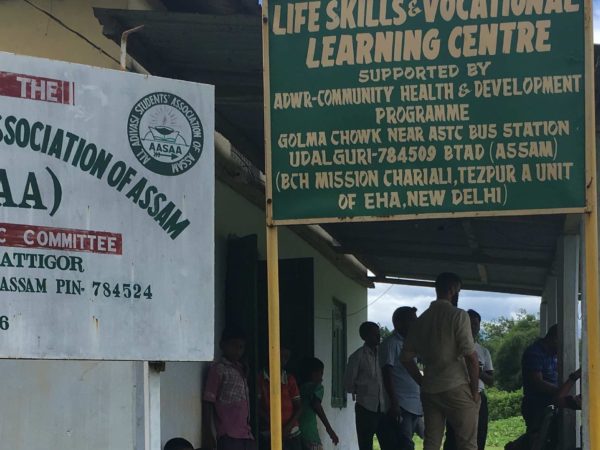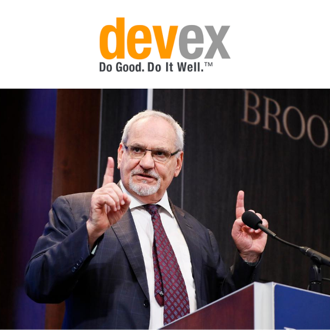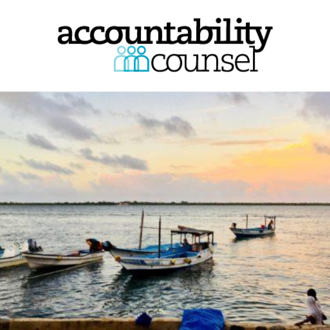World Bank: International Finance Corporation (IFC) & Multilateral Investment Guarantee Agency (MIGA) | Compliance Advisor Ombudsman (CAO)
-
Overview
Accountability Counsel advocates for the International Finance Corporation (IFC) and Multilateral Investment Guarantee Agency (MIGA)’s accountability office, the Compliance Advisor Ombudsman (CAO), to be as effective as possible, meaning that it must be independent, fair, transparent, predictable, and accessible. The CAO embodies best effectiveness practices in many ways. Accountability Counsel works to ensure that the CAO continues to build upon those best practices so that it meets the needs of communities seeking to use it.
International Finance Corporation (IFC)
Created In: 1956
Headquarters: Washington, D.C., United States
Member Countries: 184
Largest Shareholder: United States
Mission: To promote sustainable private sector investment in developing countries, helping to reduce poverty and improve people’s lives.
Multilateral Investment Guarantee Agency (MIGA)
Created In: 1988
Headquarters: Washington, D.C., United States
Member Countries: 181
Largest Shareholder: United States
Mission: To promote foreign direct investment (FDI) into developing countries to help support economic growth, reduce poverty, and improve people’s lives.
The Accountability Office: Compliance Advisor Ombudsman (CAO)
Established in: 1999
Functions: Compliance Review, Dispute Resolution, Advisory
The IFC is the largest global development institution focused exclusively on the private sector in developing countries, while the MIGA provides non-commercial guarantees (insurance) for cross-border investments into developing countries. The Compliance Advisor (CAO) is the accountability mechanism that receives complaints that stem from projects financed by the IFC or investments guaranteed by MIGA.
Some IFC financed projects have caused environmental and social harm to communities living near or working at the projects. When this happens, those communities who most need access to justice often face the greatest barriers to achieving it. Accountability Counsel exists to bridge these barriers for communities and create accountability in global finance resulting in systemic change.
We advocate for accountability offices that are independent, fair, transparent, professional, accessible, and effective tools for justice. For the IFC/MIA, this means ensuring that its accountability office, the CAO, is an effective forum for communities affected by World Bank projects to raise concerns. To date, we have supported communities in India, Kenya, Mongolia, Panama, Peru, and Ukraine in cases to the CAO.
In 2019, the World Bank Group board of directors began a review of IFC/MIGA’s accountability framework. Accountability Counsel provided recommendations based on case experience to the external experts who were tasked with researching the accountability framework and drafting recommendations for its improvement. We also continue to call for greater transparency of and stakeholder engagement in the review process to ensure that decision makers hear from the very communities who have sought or might in the future seek accountability through the CAO process. We work to make sure that this review process results in a stronger accountability framework at the IFC, MIGA, and CAO, for the benefit of communities around the world.
For more information, see our brochure on the CAO (with SOMO), our Accountability Resource Guide, or visit the CAO’s website.
Related Media
-
Our Advocacy
Pushing for Transformative Change to the IFC/MIGA Accountability Framework
In 2019, following the wake of cases that have demonstrated the weak state of accountability at the IFC and MIGA, the World Bank Group (WBG) board of directors initiated a review of the IFC’s environmental and social accountability framework. The review, which was conducted by an external review team, includes an evaluation of the role and effectiveness of the Compliance Advisor Ombudsman (CAO), the independent accountability office for the IFC and MIGA, as well as the institution’s response to problems when they arise. Accountability Counsel participated in this process as part of a multi-stakeholder reference group that provided input to the review team.
While we welcomed the opportunity to provide input as a part of the reference group, we expressed concern about the overall lack of transparency and limited public participation in the review process. We and partner organizations submitted a joint letter in October 2019 to the WBG board and the review team to push for public disclosure of the Terms of Reference and other documents pertaining to the review, adequate public consultations that include opportunities for communities to submit input in their own language, and the release of the review team’s report and recommendations before any decisions to change the accountability framework.
Our substantive input was informed by our experience supporting communities around the world harmed by IFC and MIGA activities, research into all IFC and MIGA activities that have led to CAO complaints, and a decade of policy advocacy around WBG accountability. To date, we have supported communities in India, Kenya, Mongolia, Panama, Peru, and Ukraine in cases to the CAO. Each case has exposed gaps in accountability that the IFC and MIGA must understand to avoid and remedy harm to communities.
On October 11, 2019, we joined civil society partners in submitting initial recommendations to the review team to draw attention to accountability gaps concerning disclosure, IFC responsiveness to CAO findings, and access to meaningful remedy. In January 2020, we followed up those initial recommendations with case examples that demonstrate concrete ways to improve complaints processes and institutional responses to harm.
After the review team provided its final report with recommendations to the WBG board in June 2020, Accountability Counsel and partners successfully demanded follow-through on WBG President Malpass’ commitment to publicly disclose the report for comment. Once report became public, we and over 40 organizations submitted comments supporting good faith implementation of the review team’s recommendations, which included steps to deepen management engagement and response in CAO processes, and enable remedy whenever possible. We now look forward to engage in the operationalization and implementation phases following the review.
Ensuring Responsiveness to Accountability Office Findings
Accountability Counsel joins colleagues around the world in alarm over a trend at the WBG. Increasingly, the bank’s management is refuting the findings of the bank’s independent accountability offices, the Inspection Panel and CAO, instead of developing plans to address confirmed violations of bank policy.
In November 2013, Accountability Counsel and colleagues sent a letter to President Kim demanding an end to this pattern. In a June 2016 blog post, we called for the bank’s leadership to reject the false choice between rights and development. Our work is particularly important in a time where the bank is seeking to increase the private sector’s role in the development. As our recent Devex article outlines, if accountability is not strengthened at the bank, the bank’s efforts to “crowd in” the private sector will be a setup that harms the poor and vulnerable and widens the wealth and equity gap. We are also advocating for a change in incentives for bank staff, which should include incentives for robust due diligence, community consultation, and constructive engagement with the accountability offices’ complaint processes.
We continue to engage bank leadership to ensure that the bank appropriately responds to its accountability offices, facilitates remedy for harmed communities, and implements lessons learned for future projects.
Supporting the Fight Against IFC Impunity
As Accountability Counsel supports communities bringing complaints to the CAO, our partners have explored other means of holding institutions like the IFC accountable. Jam et al. v. International Finance Corp., a landmark lawsuit brought by fishing communities in India and their lawyers at EarthRights International, challenged the WBG’s claim to absolute immunity in U.S. courts. The case reached the Supreme Court in 2018. Accountability Counsel helped co-author a joint amicus brief with several partners in support of the communities challenging the IFC’s absolute immunity. The amicus brief argues that ending legal impunity for abuses will realign incentives to better ensure that international institutions are accountable for their actions, ensure that communities seeking justice have greater leverage, and lead to better development outcomes.
On 27 February 2019, the Supreme Court issued its decision for the case, ruling in favor of the fishing communities and holding that the IFC does not enjoy absolute immunity. This decision will have a profound effect on accountability in development finance. Accountability Counsel will continue to explore how to utilize this decision to provide communities that have been negatively affected by development finance with additional and more effective avenues for redress.
Accountability for IFC Financial Intermediary Lending
Accountability Counsel has also been actively working with partners to ensure that IFC financing of financial intermediaries – other banks and funds – does not harm vulnerable communities and that communities are able to effectively seek remedy for harms at the IFC’s accountability office. We have engaged the IFC’s leadership on FIs, which has resulted in commitments to improve the IFC’s environmental and social processes for its investments in the financial sector.
Accountability in Impact Investing
In December 2018, Accountability Counsel participated in an in-person consultation on the IFC’s draft Investing for Impact: Operating Principles for Impact Management (the Principles). Published in March 2019, the final version of the Principles are a set of voluntary guidelines for impact investors, touching on impact strategy, assessment, and monitoring. Accountability Counsel and several partners made a joint submission to the IFC, and continue to advocate for revisions to the Principles that would commit signatory investors to implement a systematic approach to avoid and remedy negative impacts, consult and receive grievances from local communities impacted by their investments, and adhere to high transparency standards. Further, we continue to engage with IFC on matters that intersect with our broader impact investing advocacy.
See here for more information on Accountability Counsel’s advocacy to the World Bank.
-
Past Advocacy
Examples of Past Advocacy Campaigns
See here for more information on Accountability Counsel’s advocacy to the World Bank. -
Resources
Private sector investments at the World Bank Group are managed by the International Finance Corporation (IFC) and the Multilateral Investment Guarantee Agency (MIGA).
International Finance Corporation (IFC)
Created In: 1956
Headquarters: Washington, D.C., United States
Member Countries: 184
Largest Shareholder: United States
Mission: To promote sustainable private sector investment in developing countries, helping to reduce poverty and improve people’s lives.
Multilateral Investment Guarantee Agency (MIGA)
Created In: 1988
Headquarters: Washington, D.C., United States
Member Countries: 181
Largest Shareholder: United States
Mission: To promote foreign direct investment (FDI) into developing countries to help support economic growth, reduce poverty, and improve people’s lives.
The Accountability Office: Compliance Advisor Ombudsman (CAO)
Established in: 1999
Functions: Compliance Review, Dispute Resolution, Advisory
The IFC is the largest global development institution focused exclusively on the private sector in developing countries. The IFC has 184 member countries and works in more than a 100 developing countries to leverage private sector funding and encourage investment. The IFC’s Environmental and Social Performance Standards define IFC clients’ responsibilities for managing their environmental and social risks.
The MIGA supports and encourages foreign direct investment. It has a set of social and environmental standards that investments must follow in order to obtain its guarantee. MIGA also has social environmental performance standards that apply to projects it covers.
The Accountability Office
The Compliance Advisor (CAO) is the accountability mechanism that receives complaints that stem from projects financed by the IFC or investments guaranteed by MIGA.
The CAO has three functions:
- The ombudsman (dispute resolution) function – The ombudsman is a dispute-resolution mechanism that seeks to resolve disputes in a mutually agreeable and flexible way without finding fault. The goal of the ombudsman is to improve social and environmental outcomes on the ground. Project-affected people may bring complaints to the ombudsman.
- The compliance function – The CAO may oversee investigations of IFC and MIGA social and environmental performance to ensure that IFC and MIGA have complied with their policies, procedures, and guidelines. Compliance investigations are undertaken only at the request of IFC or MIGA staff, at the CAO’s discretion, or in response to concerns raised in a complaint to the ombudsman.
- The advisor function – The CAO gives advice to the president of the World Bank Group and staff of IFC and MIGA about particular projects or policies through the advisor function.
Submit a complaint to the CAO if:
- You are a person, group or organization (or their representative)
- You have been, or are likely to be affected by the social or environmental aspects of an IFC or MIGA project
If the CAO determines that your complaint is eligible, it will conduct an assessment to determine which CAO role the parties are seeking. If dispute resolution is available, the CAO will facilitate a process designed to address the issues in the complaint with the goal of reaching a mutually agreeable solution. The dispute resolution process is voluntary and can only move forward if all parties agree. If complainants seek compliance, or if no agreement is reached through the dispute resolution process, the CAO will conduct an appraisal and may initiate a full compliance investigation to determine adherence to IFC or MIGA social and environmental policies. Compliance investigation reports are made public and the CAO monitors changes until the IFC and/or MIGA take steps to resolve noncompliance.
For more information, see our brochure on the CAO (with SOMO), our Accountability Resource Guide, or visit the CAO’s website.
-
Documents
Institutional Documents
IFC/MIGA Independent Accountability Mechanism (CAO) Policy (2021-Present)
IFC Good Practice Note: Addressing Grievances from Project-Affected Communities
Impact Investing: Operating Principles for Impact Management
Former CAO Operational Guidelines (2013-2021)
Key Documents by Release Date
July 2022 – Accountability Counsel submitted comments on the IFC’s draft Biodiversity Finance Reference Guide, calling on the guidance to require investors and project implementers to establish accountability mechanisms.
May 2021 – Accountability Counsel and 23 partner organizations submit joint comments on draft updated CAO Operating Procedures, commending improvements and recommending steps to protect the CAO‘s independence and improve transparency, inclusivity, and IFC/MIGA response throughout the complaints handling process. Other recommendations relate to consideration of complaints regarding impacts to global public goods like climate and biodiversity, and adverse impacts enabled by underwritten activities.
Oct 2020 – By letter, U.S. Senators Patrick Leahy, Christopher Coons, and Tom Udall urged World Bank Group President Malpass to prioritize independence and diversity in the selection of the new head of the CAO.
Oct 2020 – Accountability Counsel joined 60 organizations to send a letter to World Bank Group President Malpass requesting that he select a new head of the CAO who is committed to accountability for communities.
Sept 2020 – Accountability Counsel and over 40 civil society and community organizations submitted comments on the final report of the external review of environmental and social accountability at the IFC and MIGA.
Aug 2020 – The World Bank Group released the accountability report written by external experts and opened it for public comment.
Jul 2020 – Accountability Counsel and 40 other civil society organizations sent a letter to the World Bank board of directors asking for disclosure of the accountability report written by external experts and consultations in the next steps of the accountability review process.
Jan 2020 – Accountability Counsel submitted a series of recommendations for the external accountability review of IFC, MIGA, and the CAO. Based on our experience helping communities seek redress for bank-financed harm, we recommended: (1) extending time eligibility for complaints; (2) not deferring compliance investigations; (3) allowing communities to access dispute resolution and compliance review in the sequence of their choosing; (4) requiring bank participation in dispute resolution when welcomed by communities; and (5) creating a remedy fund to assist in redressing harm.
Oct 2019 – Accountability Counsel and partners sent a joint letter to the World Bank Group Board of Directors and the external review team tasked with assessing the accountability framework of IFC and MIGA as well as the effectiveness of the CAO. The letter challenged the lack of transparency and inadequate opportunities for community input in the review process.
Oct 2019 – Accountability Counsel and partners submitted initial joint comments for the external review of IFC/MIGA environmental and social accountability framework, which includes an evaluation of the CAO’s role and effectiveness.
Mar 2019 – The IFC released the final version of the Impact Investing: Operating Principles for Impact Management.
Dec 2018 – Accountability Counsel and partners submitted joint recommendations to the IFC on its draft Impact Investing: Operating Principles for Impact Management, recommending that the IFC strengthens the Principles by including explicit references to good accountability practices.
Nov 2013 – Accountability Counsel and partner organizations sent a joint letter to World Bank President Jim Kim.
Jun 2013 – Accountability Counsel and SOMO published a Compliance Advisor Ombudsman (CAO) Guide.
Jan 2013 – The CAO released its Operational Guidelines.
May 2012 – The CAO released a Draft Operational Guidelines.
Sep 2009 – The IFC released a Good Practice Note: Addressing Grievances from Project-Affected Communities.
Related Media
11 May 2020 – IFC to freeze investment to for-profit education: small win in a long fight, Linda Oduor-Noah, The Africa Report
15 Apr 2020 – World Bank and IFC Agree to Landmark Accountability and Transparency Reforms, Margaux Day and Stephanie Amoako, Accountability Counsel
21 Feb 2020 – Latest Jam v. IFC Decision Does Not Change What has Always Been True: Strong Accountability at the IFC Benefits Investors and Communities Alike, Margaux Day and Gregory Berry, Accountability Counsel
18 Feb 2020 – Translating Community Experiences into Recommendations for Stronger Accountability at the IFC and MIGA, Accountability Counsel
17 Jun 2019 – Advocates welcome IFC reforms, but with some caveats, Sophie Edwards, Devex
31 Oct 2019 – Calls for IFC to create ‘remedy fund’ to compensate harmed communities, Sophie Edwards, Devex
22 Oct 2019 – IFC fails to ensure proper work protection for tea workers in India, Amruta Byatnal, Devex
2 Sep 2019 – IFC Escapes Responsibility for Lamu Coal Plant Contributions, Lani Inverarity, Accountability Counsel
12 Apr 2019 – How IFC is dealing with pressure to boost accountability, Sophie Edwards, Devex
10 Apr 2019 – IFC Commitment to Accountability Will Be Tested in Short Order, Accountability Counsel
4 Feb 2019 – IFC failed to ensure workers’ safety at APPL plantations: WB investigator, Kumar Sambhav Shrivastava, Business Standard
28 Jan 2019 – Press Release: World Bank and Tata Group Must Take Urgent Action to Address Long-Standing Health and Safety Concerns on Their Tea Plantations in India, Accountability Counsel, PAJHRA, PAD, and Nazdeek
1 Nov 2018 – What Jam v. IFC Should Mean to Accountability at the World Bank Group, Kindra Mohr, Accountability Counsel
2 Aug 2018 – Press Release: Experts Call on Supreme Court to Reverse Decision Protecting IFC’s Absolute Immunity, Accountability Counsel
15 Jun 2018 – MHP Complaint Found Eligible by the World Bank’s Accountability Office, the CAO, Caitlin Daniel, Accountability Counsel
30 Apr 2018 – The IFC’s worker shareholder failure, Anirudha Nagar, Accountability Counsel, in Livemint
9 Apr 2018 – 5 Benefits of Engaging in a Facilitated Dialogue Process: the Case of Myronivsky Hliboproduct, Caitlin Daniel, Accountability Counsel
4 Jan 2018 – Opinion: A critical look at the IFC’s new incentives framework, Emily Gabor, Accountability Counsel, in Devex
8 Nov 2016 – IFC didn’t follow due process while investing in APPL: World Bank, Vishwanath Nair, Livemint
3 Oct 2016 – World Bank Secretly Funding Coal Explosion in Asia Despite President Kim Warning, “We are finished,” Accountability Counsel
For more coverage of our advocacy, please see our blog and news pages.









